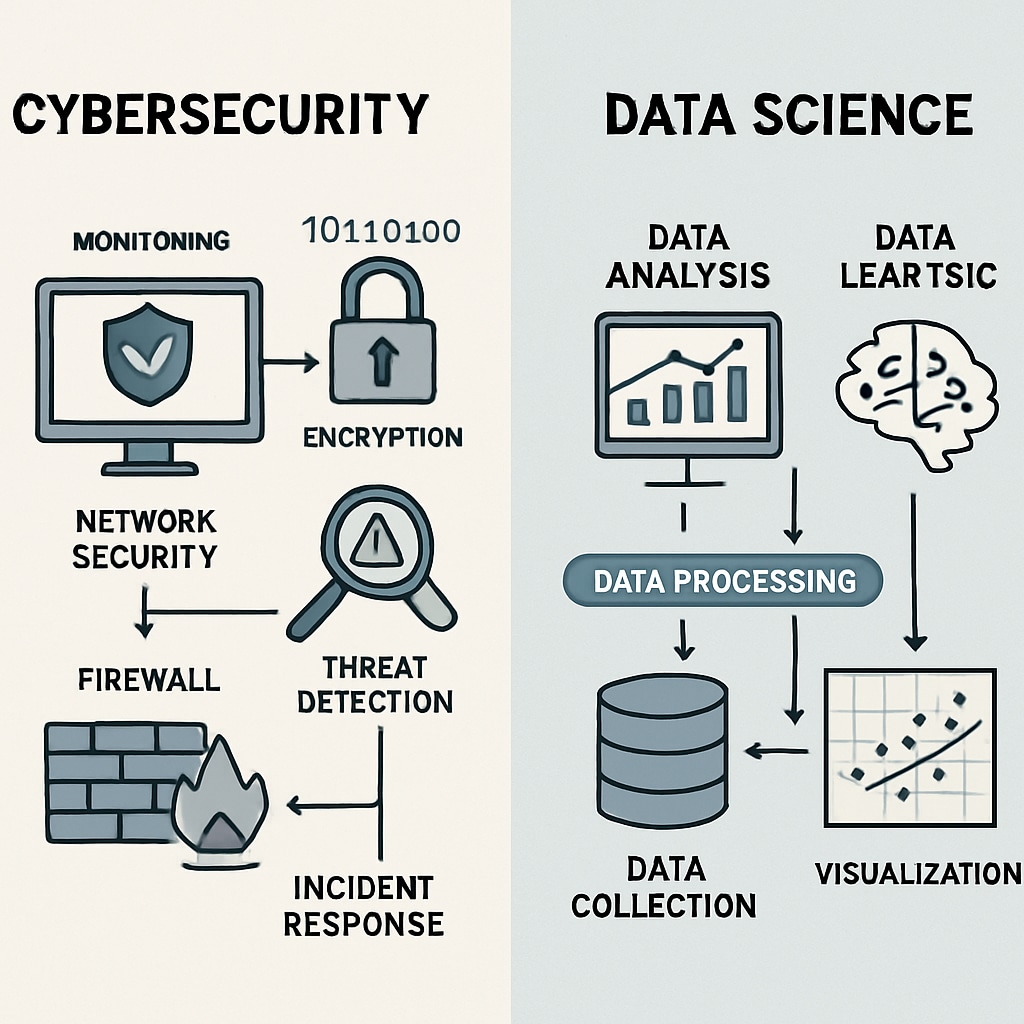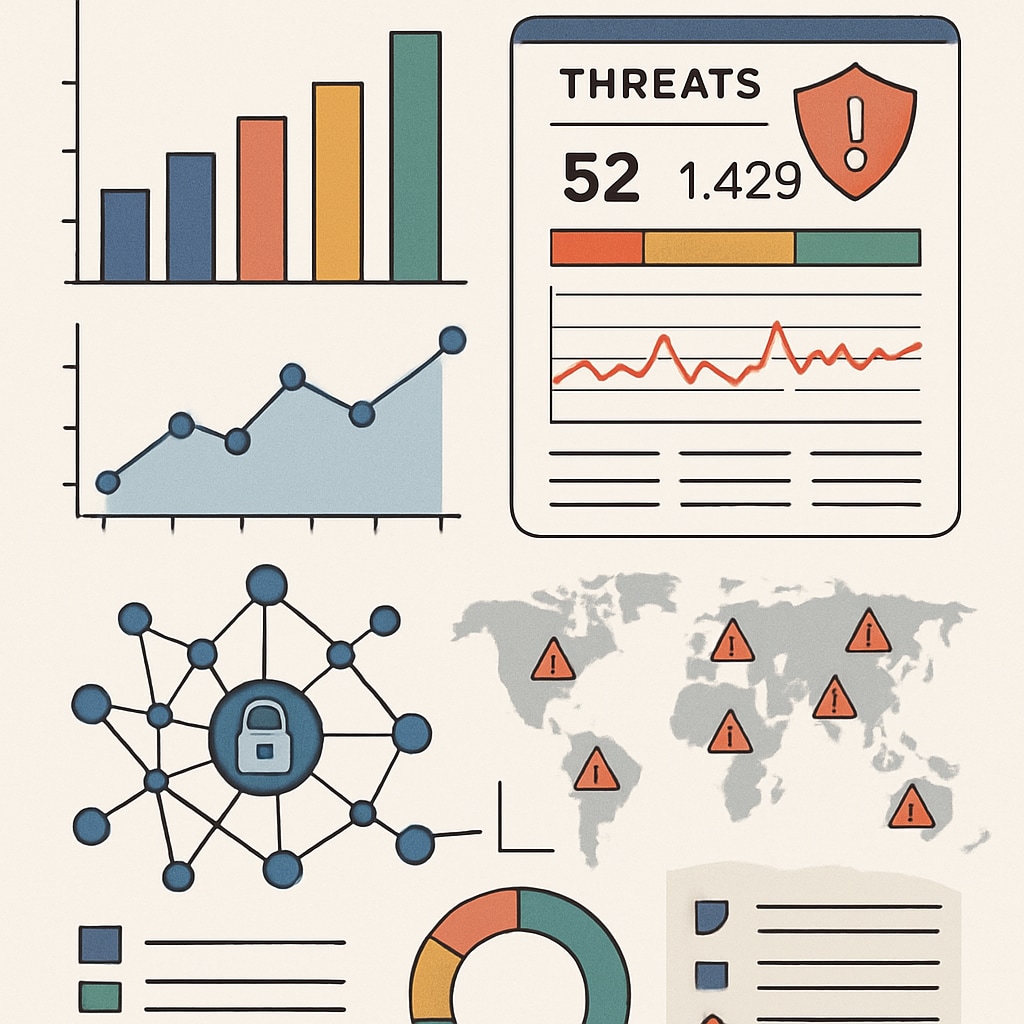Choosing between cybersecurity and data science engineering as a career can be challenging, especially for K12 students and their parents looking to navigate the digital age. Both fields are rapidly growing, offer lucrative career opportunities, and play critical roles in today’s tech-driven society. In this article, we’ll compare these two paths, exploring their educational requirements, career prospects, and lifestyle differences to help students make informed decisions.
What Makes Cybersecurity and Data Science Careers Stand Out?
Cybersecurity focuses on protecting digital infrastructure from threats such as hacking, malware, and data breaches. Professionals in this field are tasked with safeguarding sensitive information and ensuring the integrity of systems. On the other hand, data science engineering revolves around analyzing and interpreting complex data to generate actionable insights. Data scientists use tools like machine learning and statistical analysis to solve problems and drive innovation across industries.

Both fields require logical thinking, problem-solving skills, and adaptability. However, they differ significantly in their day-to-day responsibilities and overall impact. Cybersecurity professionals often work on the defensive side, protecting systems proactively. Data scientists operate on the analytical side, using data to predict outcomes and optimize processes.
Educational Pathways for Cybersecurity and Data Science
Educational requirements vary between cybersecurity and data science. For cybersecurity, students typically pursue degrees in computer science, information systems, or cybersecurity itself. Courses often include network security, cryptography, ethical hacking, and risk assessment. Certifications such as CompTIA Security+, CISSP, or CEH can boost employability.
Data science engineering, on the other hand, requires a strong foundation in mathematics, statistics, and programming. Students often major in data science, computer science, or analytics. Key subjects include machine learning, big data, and database management. Certifications like SAS, Tableau, or AWS also enhance career prospects.
Both fields demand proficiency in programming languages such as Python, but their applications differ. Cybersecurity professionals use programming to design secure systems, while data scientists apply coding to analyze data and build predictive models.
Career Prospects: Salaries and Employment Trends
Cybersecurity and data science engineering offer highly rewarding career prospects. According to the Bureau of Labor Statistics, cybersecurity roles, such as information security analysts, are expected to grow by 35% by 2031. Entry-level salaries often start at $70,000 but can exceed six figures with experience and specialization.
Data science jobs are equally in demand, with growth driven by the increasing reliance on data in business and technology. According to Britannica, data scientists typically earn between $80,000 and $140,000 annually, depending on their expertise and industry.
Both careers offer flexibility in terms of industry options. Cybersecurity professionals often work in IT, government, or finance, while data scientists are employed across healthcare, retail, and technology sectors.

Lifestyle Differences and Work Environment
While both careers require attention to detail and problem-solving, their day-to-day work environments differ. Cybersecurity roles can be high-pressure due to the constant threat of attacks. Professionals often work irregular hours, especially during security incidents. However, the sense of accomplishment from protecting systems can be highly rewarding.
Data science jobs are generally more structured, with regular hours and a focus on innovation. The work is project-based, involving collaboration with teams to extract insights and present findings. Data scientists enjoy the creative aspect of solving problems and visualizing trends.
For students considering these careers, it’s essential to reflect on their interests and preferred work styles. Are they drawn to the fast-paced, defensive nature of cybersecurity or the analytical, creative aspects of data science?
Making the Right Choice
Ultimately, choosing between cybersecurity and data science engineering depends on individual strengths and career goals. Both fields offer stability, growth, and opportunities to make a meaningful impact. For students unsure about their direction, exploring introductory courses or internships can help clarify their interests.
As the digital world evolves, professionals in both fields will play critical roles in shaping its future. Whether defending against cyber threats or unlocking the potential of data, these careers promise exciting challenges and rewards.
Readability guidance: Use short paragraphs and bullet points when summarizing differences or advantages. Incorporate clear examples and authority links for additional context. Ensure even distribution of keywords and avoid redundancy.


